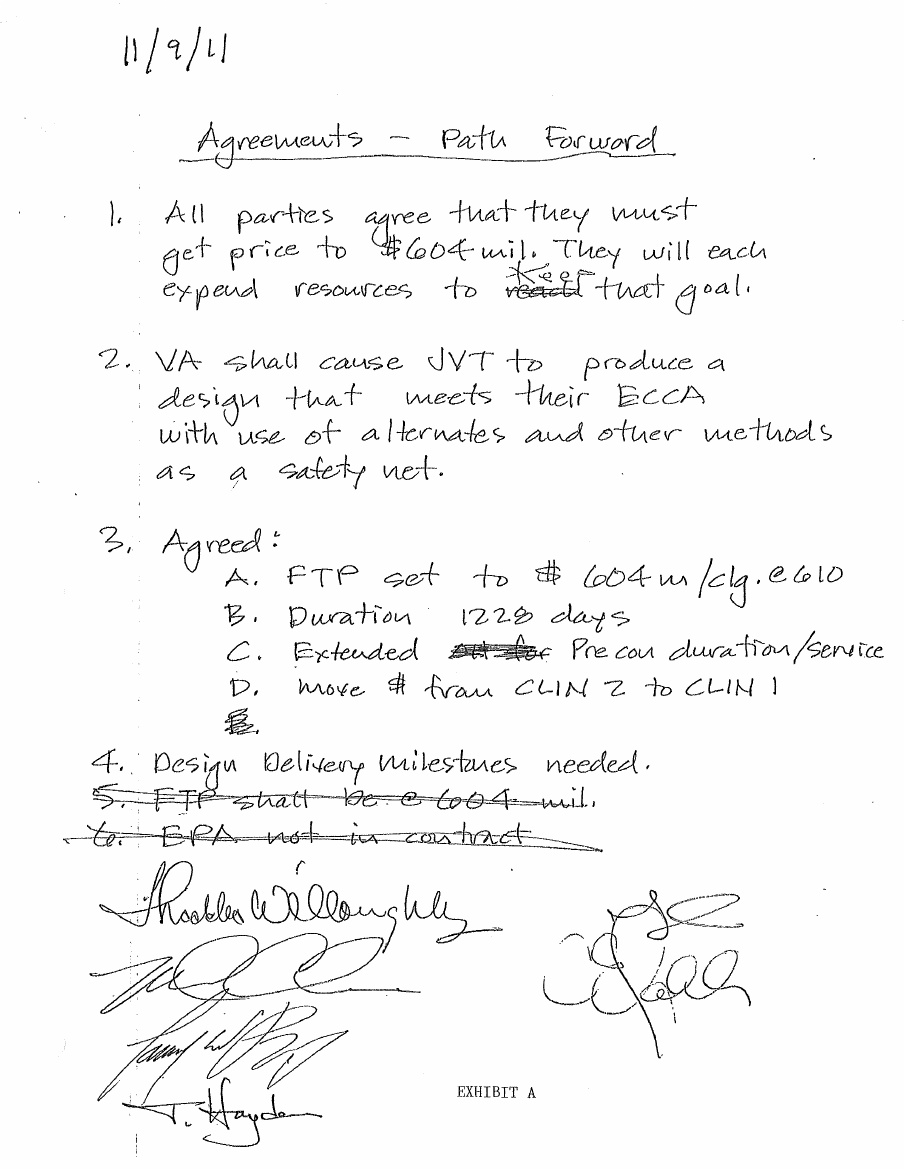

To measure how far apart the Kiewit-Turner joint venture is from the Dept. of Veterans Affairs (VA) on the final cost of completing a new veterans hospital in Aurora, Colo., you can start with their differing views of “the note.”
The note is a handwritten agreement completed in November 2011. In it, both the contracting venture and the department pledge to devote resources to keep the project cost to $604 million. Kiewit-Turner says the note is a memo of understanding.
The VA says it isn’t a memo of understanding nor is it binding. It also says the contract is the main document that matters.
The spirit of cooperation captured in the handwritten note, now known as appellant’s Exhibit A, appears to have evaporated in the crisp Colorado air. What remains is essentially a multi-hundred-million-dollar dispute about cost and responsibility. The dispute seems to epitomize the risks inherent in the now-muddled soup of integrated-project-delivery systems, one in which each party may see what it wants to see until the matter ends up before a judge.
In a reply to Kiewit-Turner’s federal appeals-board complaint, the VA last week challenged the contractor to provide more proof that the Aurora replacement medical center has a completion cost that approaches $1 billion.
Although it is a multi-building hospital complex, a $1-billion price tag has the potential to provoke much unwanted bad publicity. Further, the VA already has had plenty of that and may not have the funds to pay it all.
In a complaint filed on July 8 with the Civilian Board of Contract Appeals, Kiewit-Turner said the department had agreed to keep the cost to $604 million, and claims it is justified in stopping work because that promise was not kept.
The estimated cost of construction at the time of the contract award was $583 million.
The designs were frequently late and incomplete, and the department failed to take steps needed to reduce costs or to advise Kiewit-Turner on how to contain the costs as construction began, Kiewit-Turner claimed.
While insisting the project could not cost more than $604 million, the department failed to do anything to make the designers revise the design to cut the costs, Kiewit-Turner argues. The owner and contracting joint venture reached an impasse, according to Kiewit-Turner’s complaint. To move forward, the two sides signed the handwritten note.
Outside Opinions Sought
The department and contracting venture separately engaged Leo A Daly Co. and Jacobs Engineering to review the project design and costs. The Jacobs review put the project’s estimated cost to complete at about $781 million. Kiewit-Turner quotes a Jan. 23, 2010, letter from the department to its design team, H+L/SOM LLP/CRA. S.A. Miro Inc., that says the team must redesign within the funding limits. The letter asserts that the current design exceeds the limit by $199 million.
In a stinging response statement and reply, the department says Kiewit-Turner had much input during design and failed to point out problems.
Kiewit-Turner “does not have the right to stop work and has failed to prove how a project that KT [Kiewit-Turner] agreed to build for $604 million could now be in excess of $1 billion,” the department claims.
The department characterizes the project as integrated design-construction.




Post a comment to this article
Report Abusive Comment